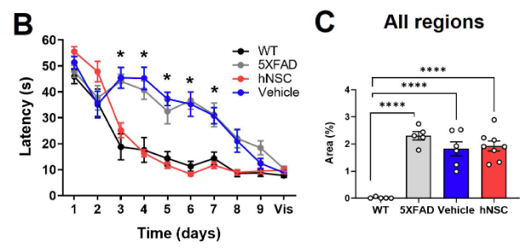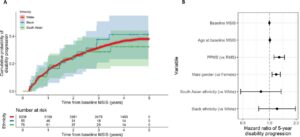
Kevin Chen, et al. – University of Michigan.
Background: Prior studies have found that transplanting human neural stem cells (hNSCs) improves cognitive function in AD mouse models, but the mechanisms by which they do so are unclear.
This Study: Using the 5xFAD mouse model, Chen and colleagues replicated results from the less aggressive APP/PS1 model showing that xenografted hNSCs restored spatial memory in the Morris Water Maze. Unlike in the APP/PS1 model, however, this was not accompanied by a reduction in amyloid burden. Spatial transcriptomics revealed that hNSCs blunted AD-associated increases in numerous inflammatory signaling pathways, both near the site of transplantation and throughout the brain. The authors also found that hNSCs reduced expression of plaque-induced genes of microglia near amyloid plaques and the fraction of microglia in disease-associated states.
Bottom Line: Reducing neuroinflammation and microglial activation with hNSCs provides cognitive benefits in AD mouse models, even without reducing amyloid burden in more aggressive models. This provides further evidence that cognitive impairment may be due to immune responses to amyloid, rather than amyloid itself.




